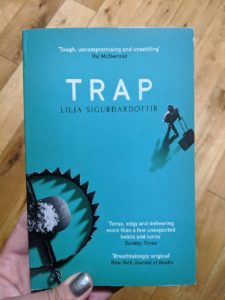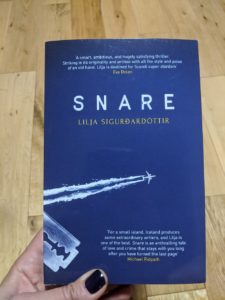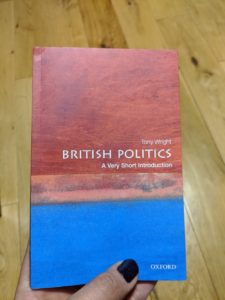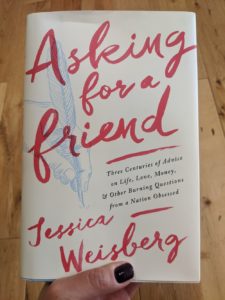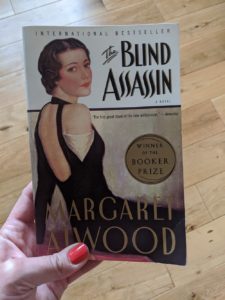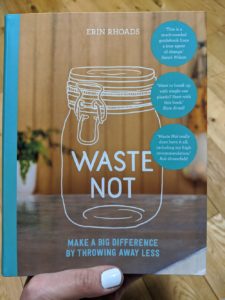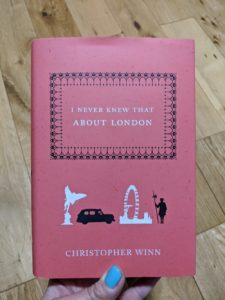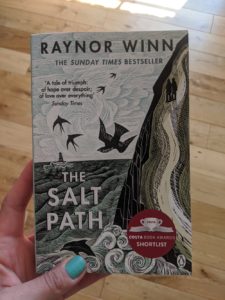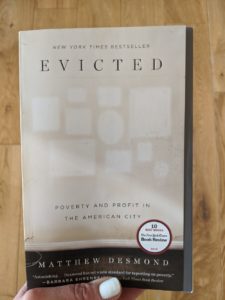 Five Stars
Five Stars
Best for:
Those interested in poverty, society, and housing. People who appreciate less academic, more narrative non-fiction books.
In a nutshell:
Ethnographer Desmond follows a couple of landlords (really slumlords) and a handful of tenants through housing struggles.
Worth quoting:
Landlords were allowed to rent units with property code violations, and even units that did not meet “basic habitability requirements,” as long as they were up front about the problems.
Between 2007 and 2010, the average white family experienced an 11 percent reduction in wealth, but the average Black family lost 31 percent of its wealth. The average Hispanic family lost 44 percent.
Why I chose it:
I heard many good things about this when it first came out a few years ago but waited for the paperback version. I decided to finally take it off my TBR pile given what we’re seeing now with the influx of people unable to pay rent due to lost wages stemming from the pandemic.
Review:
I am both a tenant and a landlord. It’s a weird situation to be in. After we bought our home in Seattle, we ended up with the opportunity to move to London, and so have been renting out our house because we want to come back some day. That means we also rent in London, and have a pretty shitty landlord. Our flat is fine, but we haven’t had gas since mid-October (we now rely on small propane tanks for heat and hot water that give no warning before they run out. It’s super fun). In one week, both the hot water heater in the house we own and the one in our apartment broke. We (eight time zones away) were able to get someone out to the house to fix it that day; our landlord didn’t pick up the phone for a few hours even though the hot water heater had literally flooded and was pooling water in the kitchen.
So what I’m saying it, I have experience in general on both ends, but my god do I have zero respect for landlords who are out to make a profit off of housing. Like healthcare, I think housing is a human right that should not be withheld for lack of payment,I also don’t think someone should be driven further into debt or poverty while attempting to secure housing.
Desmond follows two landlords – Sherrena, who owns many very low-quality housing units, and Tobin, who owns a trailer park. Sherrena starts out looking like perhaps she cares about her tenants; in reality she cares about squeezing as much money from them as possible. Tobin doesn’t really ever look good. The tenants Desmond talks to either rented from Sherrena or Tobin, such as Arleen, Scott, Patrice, and Larraine (many of whom had children) and all were evicted due to variations on a theme. A missed welfare check. Laid off from work. Unexpected repairs they somehow had to pay for themselves. Having to choose between utilities or rent or food.
In the US there seems to be a real focus on the deserving vs the undeserving poor. People are much more sympathetic to someone who comes upon hard times unexpectedly (like, say a pandemic forcing the restaurant they work at to close) than someone who starts from a tough place. You can see that with all the legislation being passed to help people right now, even though there were plenty of people before COVID-19 who could have used the exact same help. There such a morality attached to being poor compared to being broke, and how people react when they learn the details of someone’s life circumstances shows a lot about their character, in my opinion.
There’s so much in this book to be angry about, but one thing I wanted to highlight was how the criminal punishment complex really plays in here. In one chapter, Desmond talks about evictions related to ‘nuisance’ calls. In Milwaukee, the police could issue nuisance citations if they received three calls to a residence in 30 days. They considered calls regarding domestic violence to be ‘nuisance’ calls. Which means a person being beaten by their husband better not call the cops if, say, the cops have been called before, lest they also get an eviction to go alongside their broken nose. And of course there’s a huge racial element here. Per Desmond, “in white neighborhoods, only 1 in 41 properties that could have received a nuisance citation actually did receive one. In Black neighborhoods, 1 in 16 eligible properties received a citation.”
Desmond does a great job with this book. He tells multiple stories, weaving them together as a narrative. This book could have felt dry and academic; instead I was learning intimate details of these lives, with statistics interwoven to accentuate their lived experiences. It was heartbreaking and frustrating and infuriating.
Right now we’re seeing a lot of people talking about those who were already precarious who are going to face more hardship because of the world’s economic collapse in relation to the pandemic. And that’s good! These folks will need as much help as we can provide (and we, especially in the US, can always provide more if we shift our priorities), but I would encourage people to also consider those who were facing housing challenges before the economy cratered, and who may still be struggling after it has come back.
Keep it / Pass to a Friend / Donate it / Toss it:
Pass to a Friend
